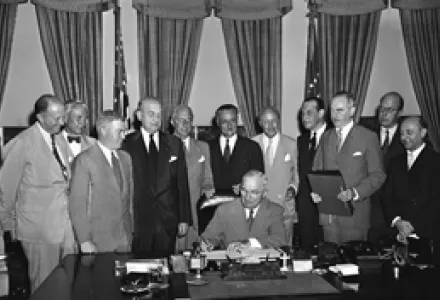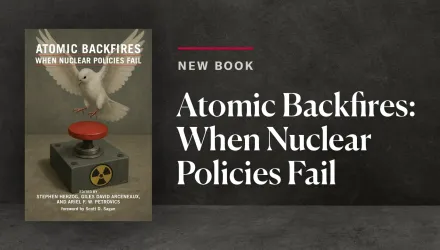Why did America's grand strategy towards Europe vary so erratically during the 20th century? That is, why did its fundamental alliance and military commitments oscillate between isolation and great power war in the first half of the century, while evincing a steady increase in internationalist engagement from the later half of the Cold War to the present? Mr. Green argues that the type of liberal ideas held by the leaders of the American state was of central importance. The American elite shifted their understanding of liberalism from a "negative concept" of liberty to a "positive concept" of liberty during the course of the 20th century. A battle between the competing liberal traditions caused the highly varied grand strategy in the first part of the century, while a consolidation of the victorious positive liberty was a controlling variable in the steady expansion of American engagement from the 1960s to the present.
This presentation will cover the theory that Mr. Green uses to explain the American approach to Europe in the 20th century and one of the key transitional cases, the early Cold War.
Please join us! Coffee and tea provided. Everyone is welcome, but admittance will be on a first come–first served basis.




